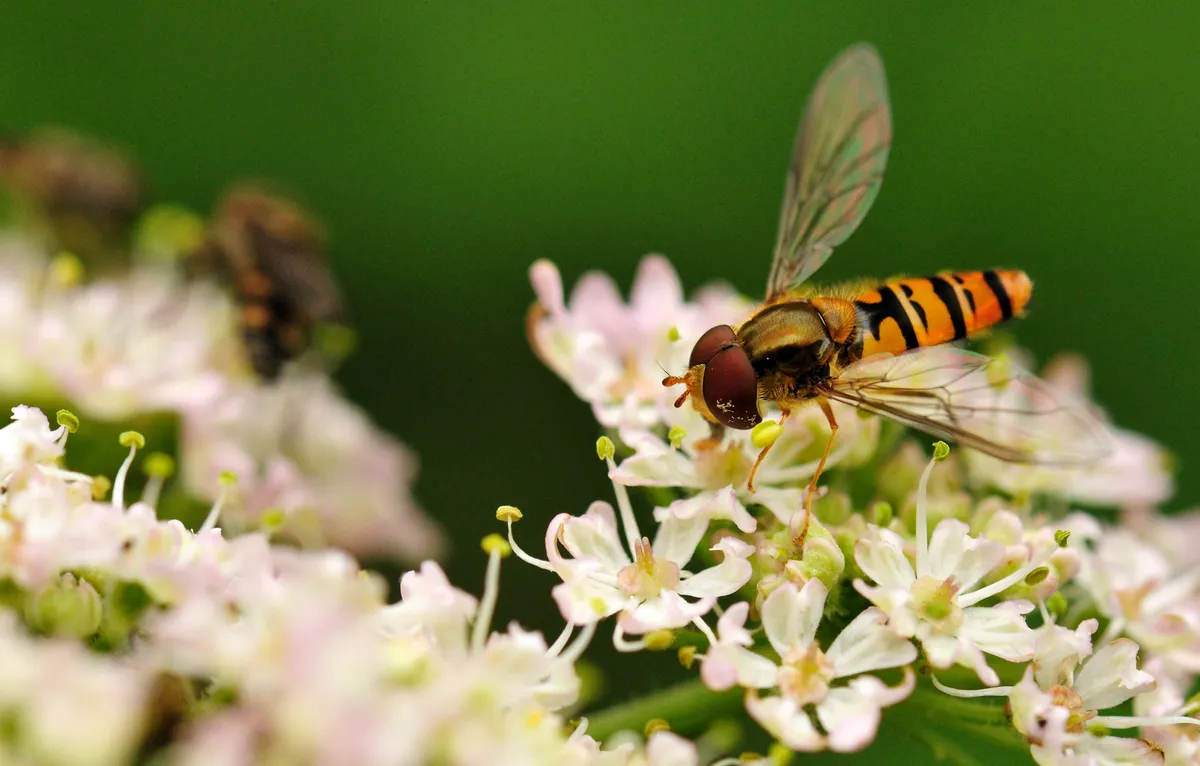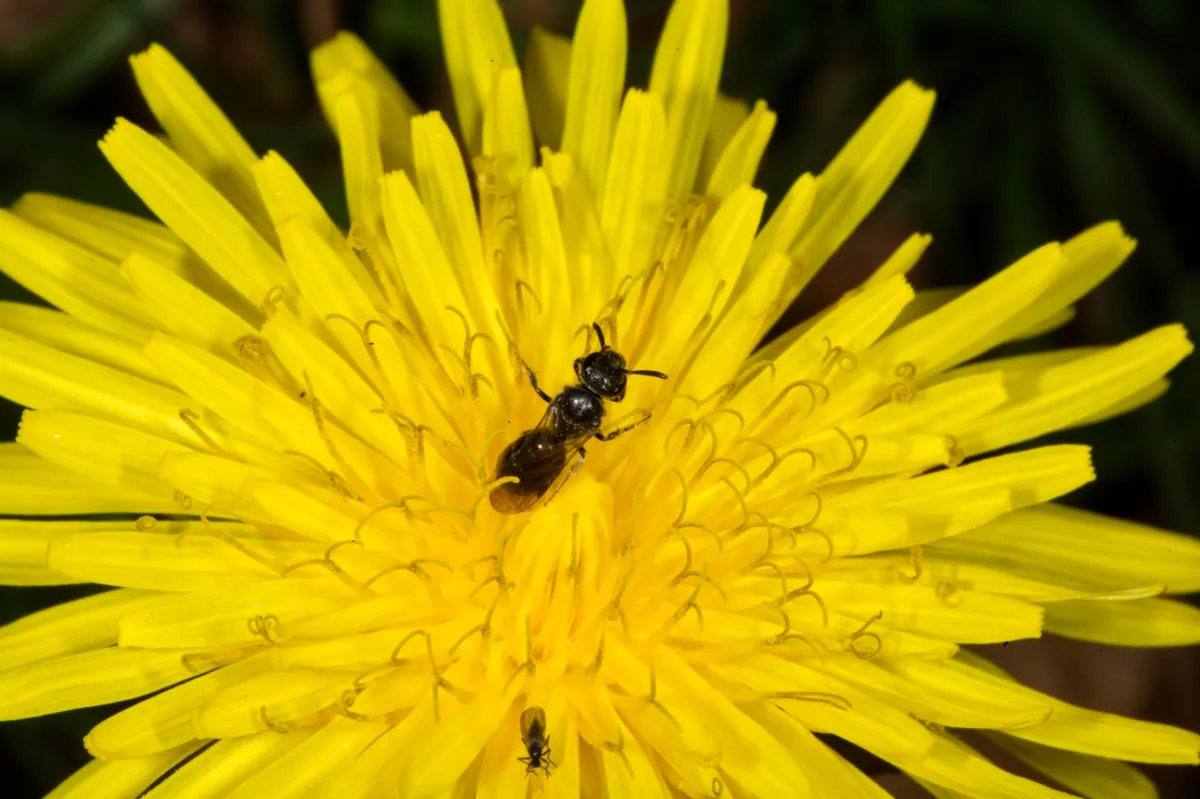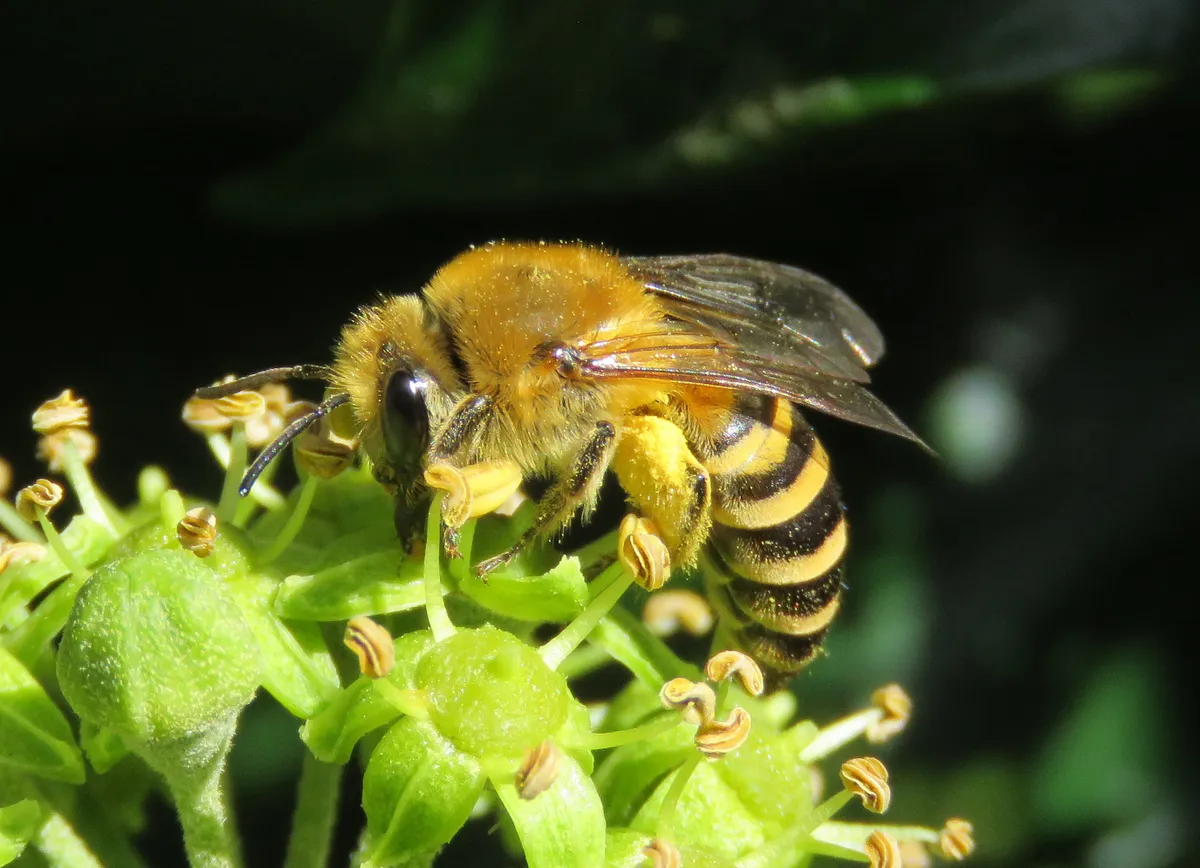A study led by the Centre for Ecology & Hydrology investigated the presence of 353 wild bee and hoverfly species from 1980 to 2013.
A third of species studied were seen to have declined in terms of areas they were previously found, while a tenth have increased.
The positive finding was in the increase in key bee species responsible for pollinating flowering crops.
This has been associated with a large increase in flowering crops grown during the study period and government schemes aimed at increasing wildflower presence.
“While the increase in key crop pollinators is good news, they are still a relatively small group of species,” says Dr Gary Powney, who led the research.
“With species having declined overall it would be risky to rely on this group to support the long-term food security for our country. Non-crop pollinators are also vital for a healthy countryside rich in biodiversity; not only because of their crucial role in pollinating wildflowers, but as a key food resource for other wildlife.”

Loss of pollinator species is more notable in the north, potentially as a result of climate change reducing availability of suitable habitat.
Any decline in pollinator species is likely to have a negative effect on the biodiversity of the countryside.
The study drew on data collected by the UK Hoverfly Recording Scheme and the Bees, Wasps and Ants Recording Society.

“There is an urgent need for more robust data on the patterns and causes of pollinator declines,” adds co-author Dr Claire Cavell.
“While this analysis sends us a warning, the findings support previous studies suggesting that conservation actions, such as wildlife-friendly farming and gardening, can have a lasting, positive impact on wild pollinators in rural and urban landscapes. However, these need further refining to benefit a wider range of species.”

Read the full paper in Nature Communications.
Main image: Red-shanked bumblebee Bombus ruderarius. © Steven Falk
